
Supernatural is the eighteenth studio album by American rock band Santana, released on June 15, 1999, on Arista Records. After Santana found themselves without a label in the mid-1990s, founding member and guitarist Carlos Santana began talks with Arista president Clive Davis, who had originally signed the group to Columbia Records in 1969. Santana and Davis worked with A&R man Pete Ganbarg, as Santana wanted to focus on pop and radio-friendly material. The album features collaborations with several contemporary guest artists, including Rob Thomas, Eric Clapton, Eagle-Eye Cherry, Lauryn Hill, Dave Matthews, Maná, and CeeLo Green.

Shaman is the nineteenth studio album by Santana. Shaman was released on October 22, 2002, and debuted at number 1 on the Billboard 200 with first week sales of 298,973. It was certified Double Platinum by the RIAA and Gold in Greece.

Milagro is the seventeenth studio album by Santana, released in 1992. Milagro, which means "miracle" in Spanish, was dedicated to the lives of Miles Davis and Bill Graham, and was Santana's first album on the Polydor label after twenty-two years with Columbia Records. The album reached 102 in the Billboard 200.

Spirits Dancing in the Flesh is the sixteenth studio album by Santana. It reached eighty-five in the Billboard 200.
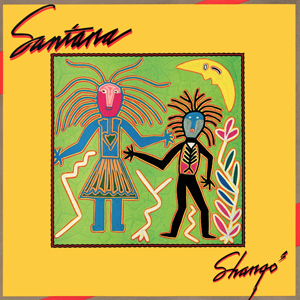
Shangó is the thirteenth studio album by Santana. The album reached #22 on the Billboard 200 album charts. The single "Hold On" from the album reached number 15 in the U.S. Billboard Hot 100 singles chart and number 17 on Billboard's Top Tracks chart. A second single from the album, "Nowhere to Run", peaked at number 66 on the Hot 100 chart and number thirteen on the Mainstream Rock chart and a third single reached number 34 in the Mainstream Rock chart.
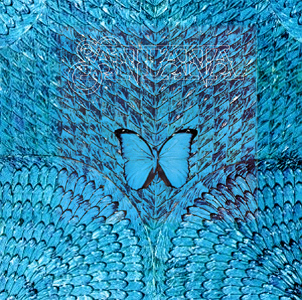
Borboletta is the sixth studio album by the American Latin rock band Santana. It is one of their jazz-funk-fusion oriented albums, along with Caravanserai (1972), and Welcome (1973). Non-band albums by Carlos Santana in this style also include Love Devotion Surrender (1973) with John McLaughlin and Illuminations (1974) with Alice Coltrane, Jack DeJohnette and Jules Broussard. The guitarist leaves much room to percussion, saxophone and keyboards to set moods, as well as lengthy solos by himself and vocals. The record was released in a metallic blue sleeve displaying a butterfly, an allusion to the album Butterfly Dreams (1973) by Brazilian musician Flora Purim and her husband Airto Moreira, whose contributions deeply influenced the sound of Borboletta. In Portuguese, borboleta means "butterfly".

Amigos is the seventh studio album by Santana released in 1976. It generated a minor U.S. hit single in "Let It Shine" and was the band's first album to hit the top ten on the Billboard charts since Caravanserai in 1972. In Europe, the song "Europa" was released as a single and became a top ten hit in several countries.
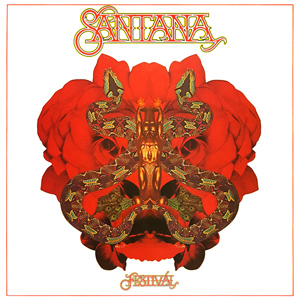
Festivál is the eighth studio album by Santana, released in January 1977. It peaked number twenty seven in the Billboard 200 chart and number twenty nine in the R&B Albums chart.
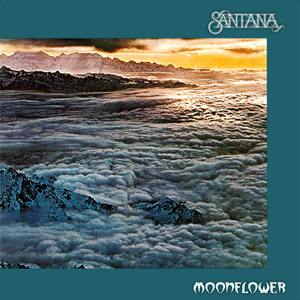
Moonflower is a double album released in 1977 by Santana. The recording features both studio and live tracks, which are interspersed with one another throughout the album. It is perhaps the group's most popular live album, because the 1974 album Lotus did not receive a U.S. domestic release until 1991. It displays a mix between the fusion of Latin and blues rock styles of the late 1960s and early 1970s, and the much more experimental and spiritual jazz fusion sound that characterized the band's mid-1970s work. The live material was recorded during the supporting tour for the Amigos album. This is the first of 5 albums with drummer Graham Lear.
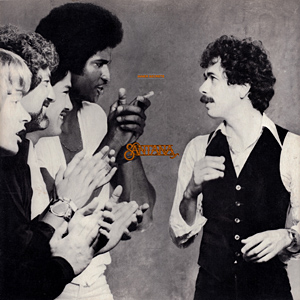
Inner Secrets is the tenth studio album by Santana. It was released in 1978 and, unlike the fusion of Latin, jazz, rock, and spirituality that characterized previous records, it was considered a rock album.

Marathon is the eleventh studio album by Santana. This marked the beginning of the group's commercial slide, in spite of having the Top 40 hit "You Know That I Love You".

The Swing of Delight is a 1980 double album by Carlos Santana. It was released under his temporary Sanskrit name Devadip Carlos Santana, given to him by Sri Chinmoy. It peaked at #65 on the charts.

Zebop! is the 12th studio album by the American rock band Santana. The album had several releases, and various different color cover backgrounds, including pink and red. The album featured "Winning"; both the album and single were one of Santana's last top 40 hits until 1999 with their release of Supernatural.

Beyond Appearances is the fourteenth studio album by Santana, released in 1985.

Freedom is the fifteenth studio album by Santana. By this recording, Santana had nine members, some of whom had returned after being with the band in previous versions. Freedom moved away from the more poppy sound of the previous album, Beyond Appearances and back to the band's original Latin rock. However, it failed to revive Santana's commercial fortunes, reaching only ninety-five on the album chart.

Blues for Salvador is a 1987 album by Carlos Santana, dedicated to his son Salvador. The record was released by Carlos Santana as a solo project, not with the Santana band. It won the 1989 Grammy Award for Best Rock Instrumental Performance, his first Grammy ever.
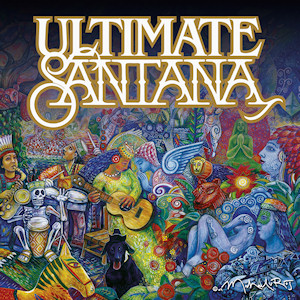
Ultimate Santana is a compilation by rock band Santana, combining hits from recent albums Supernatural, Shaman and All That I Am with early classics. Amongst the 18 tracks there are three new recordings. This album was made possible when Sony Music Entertainment merged with BMG to form Sony BMG.
"They All Went to Mexico" is a song written by Greg Brown, and recorded by Carlos Santana with Willie Nelson on vocals for Santana's 1983 album Havana Moon.

Shape Shifter is the twenty-second studio album by Santana. It was released on May 14, 2012. This album is the first from his new record label Starfaith Records, which is distributed by Sony Music Entertainment, owners of all of Santana's albums. It is also the first album since 1992's Milagro that does not feature guest singers in any of the songs, a style that characterized Santana's albums since Supernatural. The album contains only one song with vocals. The track "Mr. Szabo" is a homage to the Hungarian guitarist Gábor Szabó, one of Carlos Santana's early idols, who released a series of 8 albums for Impulse Records between 1966 and 1967; the track features a similar rhythmical and harmonic structure to "Gypsy Queen", a Szabó recording from 1966 covered by Santana in 1970 as a medley with Fleetwood Mac's "Black Magic Woman".


















